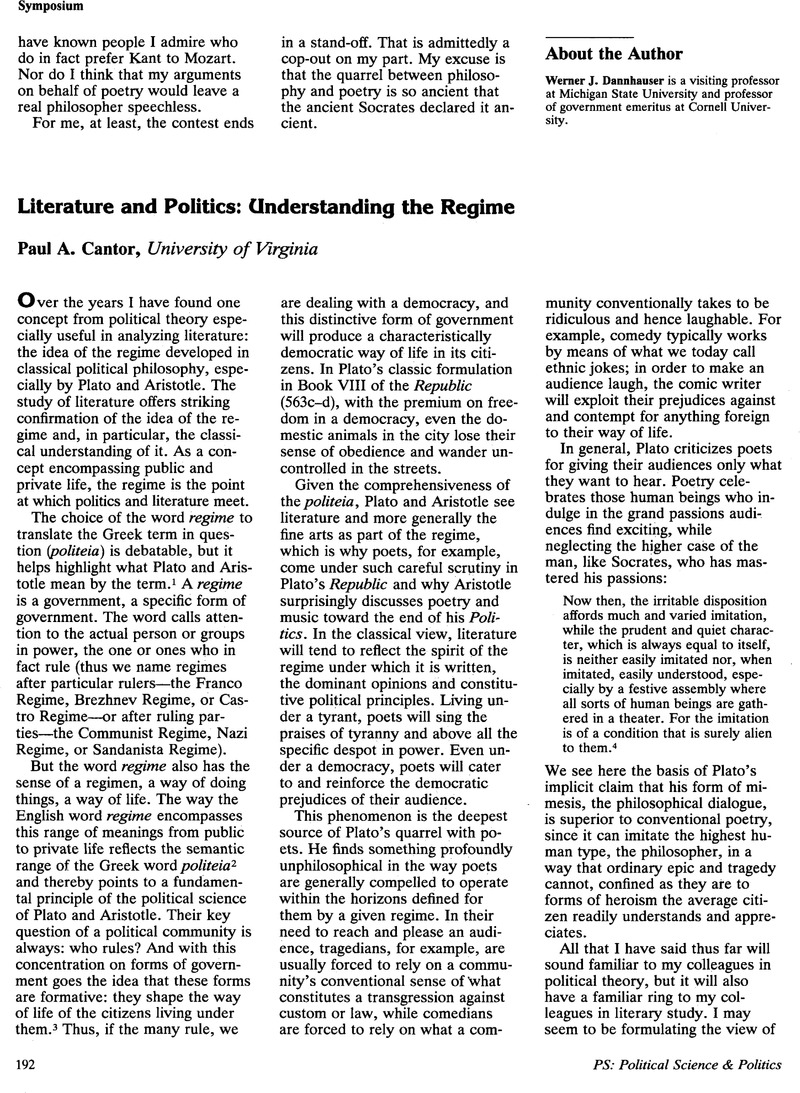Published online by Cambridge University Press: 02 September 2013

1. On this subject, see Strauss, Leo, Natural Right and History (Chicago: University of Chicago Press, 1953), pp. 136–38Google Scholar. For the classical understanding of the regime, see, for example, Books VIII and IX of Plato's Republic and Books III and IV of Aristotle's Politics.
2. The Liddell and Scott Intermediate Greek-English Lexicon gives the following meanings for politeia: “the condition and rights of a citizen, citizenship,” “the life of a citizen, civic life,” “the body of citizens,” “the life and business of a statesman, government, administration,” “the measures of a government,” “the civil polity, the condition or constitution of a state,” “a form of government,” “a republic, commonwealth.”
3. Another term that might translate politeia is thus constitution. The institutional framework of a community has a constitutive force; like the word regime, constitution has a political and a personal meaning. We speak of a nation's constitution and a person's constitution. The insight of classical political philosophy could thus be expressed by stating that these two meanings are related: the constitution in the sense of the form of government shapes the very character of a citizen, his constitution.
4. Republic, 604e. Quoted in the translation of Bloom, Allan (New York: Basic Books, 1968)Google Scholar.
5. For a detailed analysis of the New Historicism, see my article “Stephen Greenblatt's New Historicist Vision,” Academic Questions, 6 (1993), 21–36 CrossRefGoogle Scholar.
6. The Mill on the Floss, Book Third, Chapter I. Quoted in the edition of Haight, Gordon S. (Boston: Houghton Mifflin, 1961), pp. 173–74Google Scholar.
7. I believe that this possibility is intimated at the end of the Symposium, but it is even hinted at in the Republic, when Socrates invites the poets to offer an “apology” to justify their role in the city (607c–608a).
8. I explore this issue in my book, Shakespeare's Rome: Republic and Empire (Ithaca, NY: Cornell University Press, 1976)Google Scholar. The classic statement of the importance of the regime in Shakespeare is Bloom's, Allan essay “Political Philosophy and Poetry” in his Shakespeare's Politics (New York: Basic Books, 1964), pp. 1–12 Google Scholar.